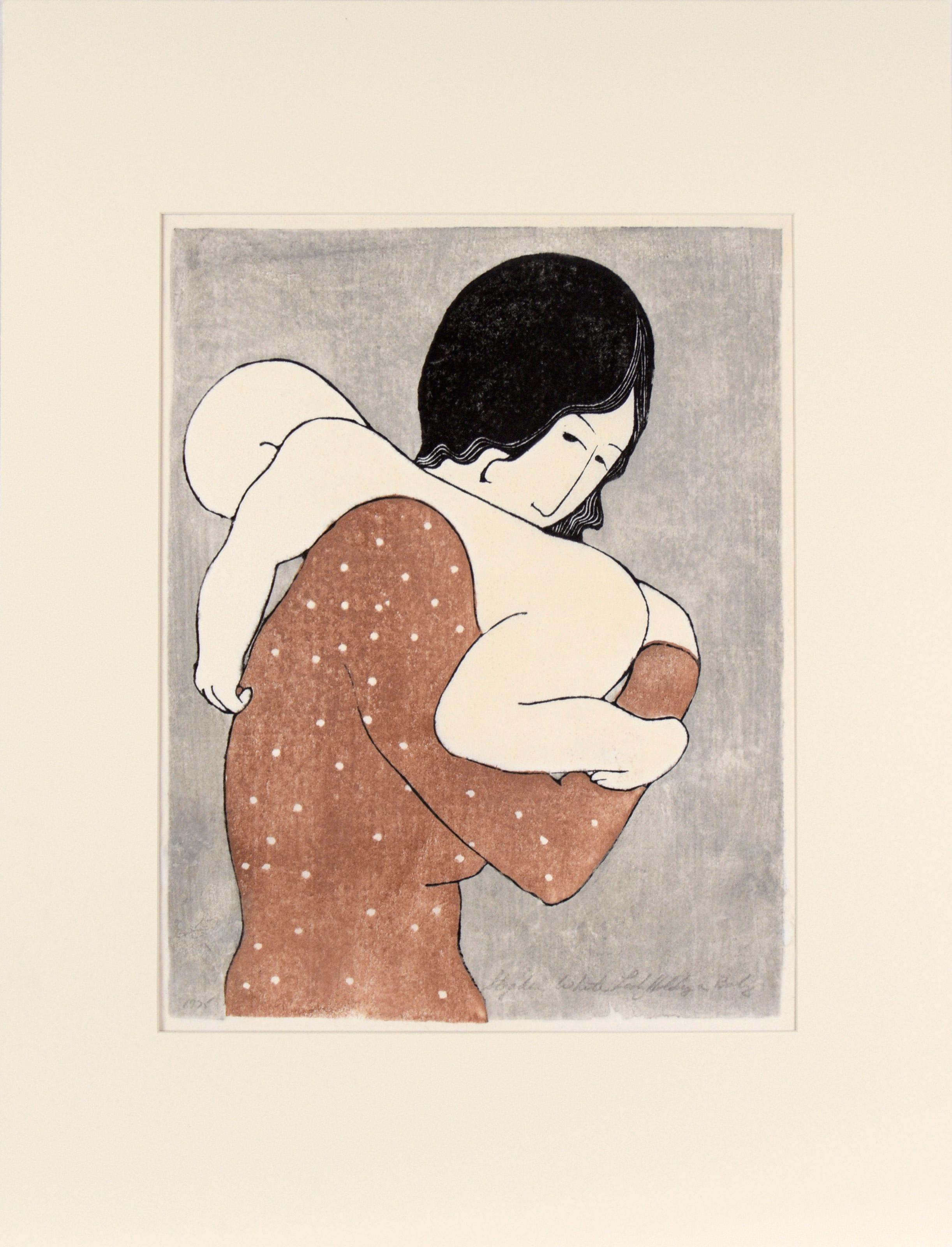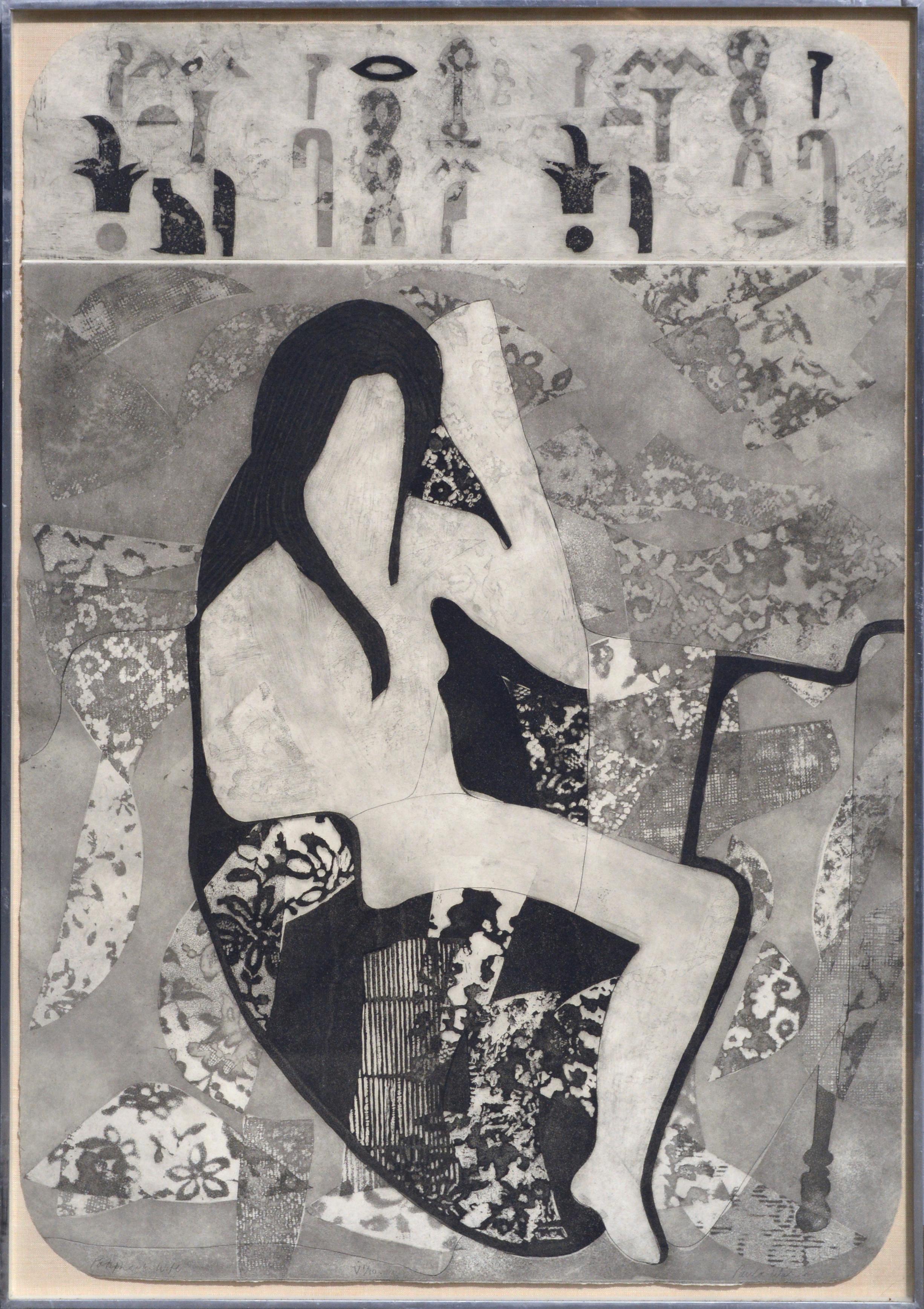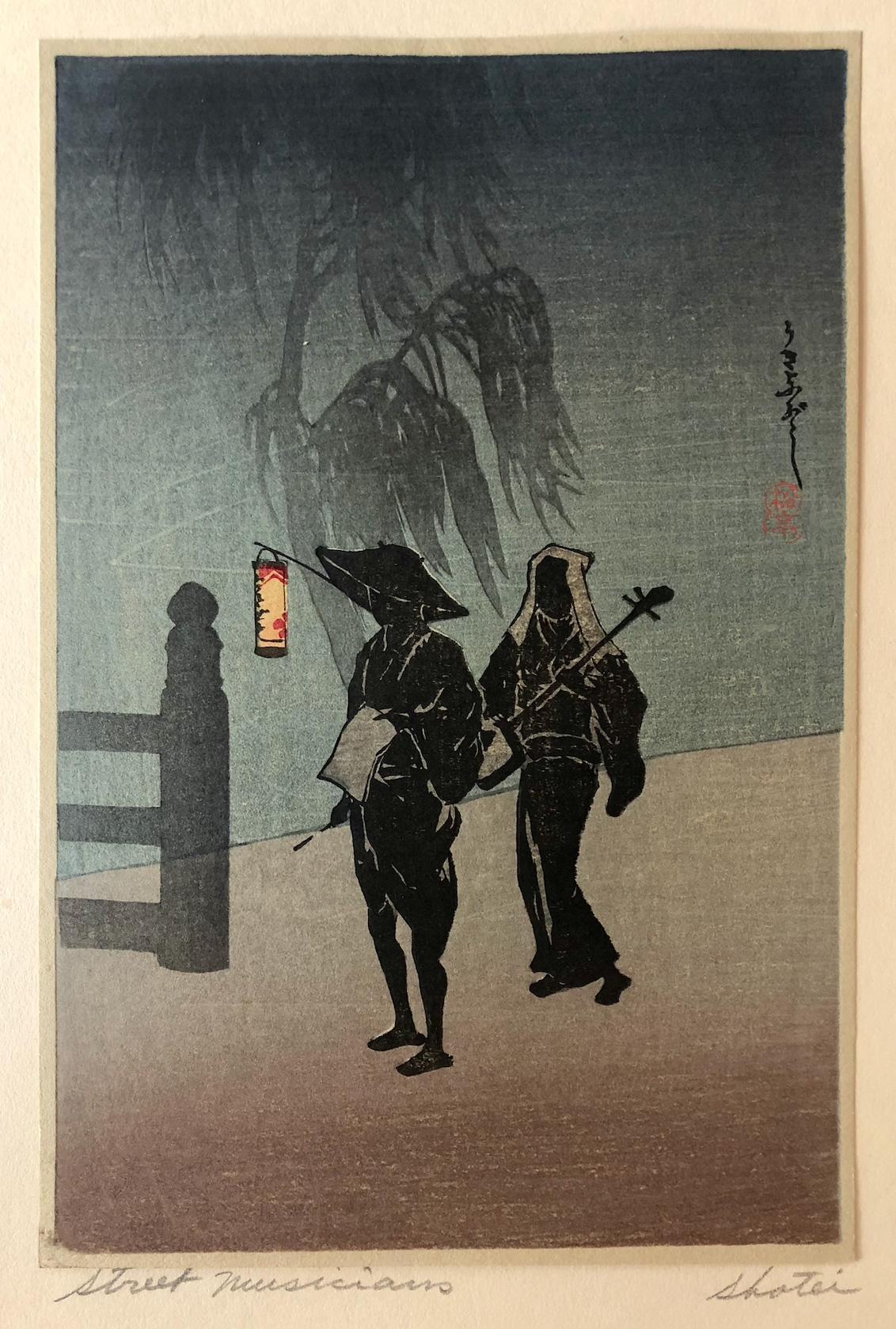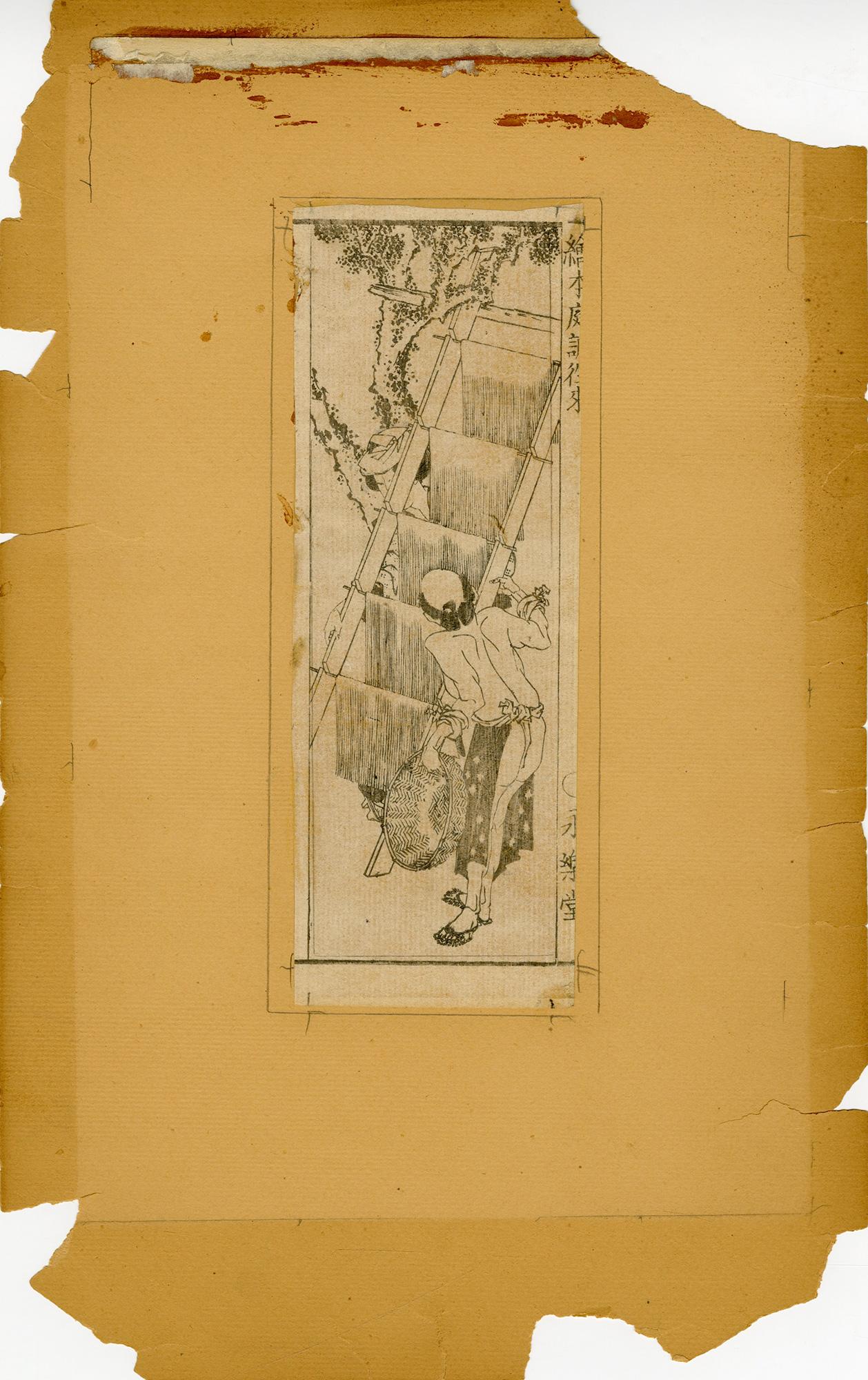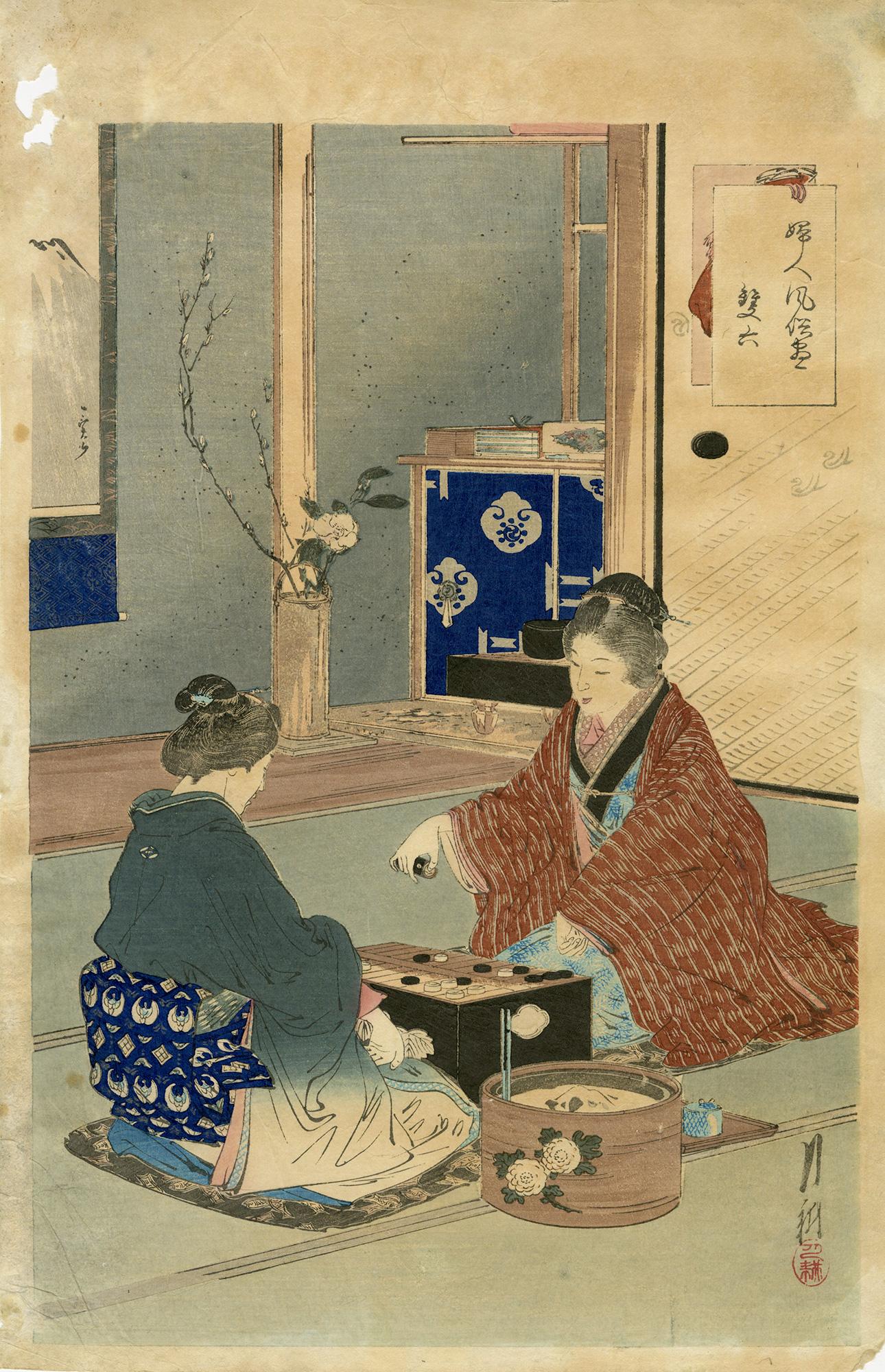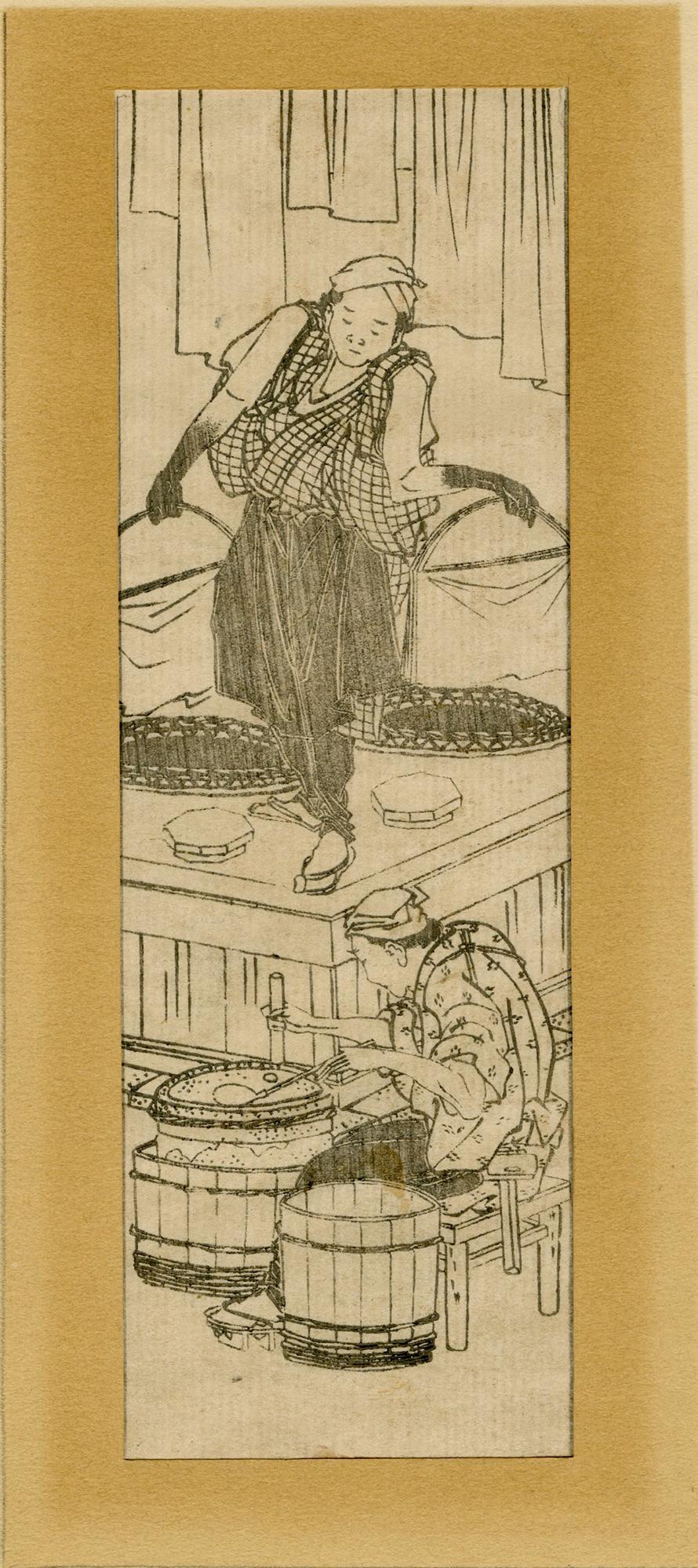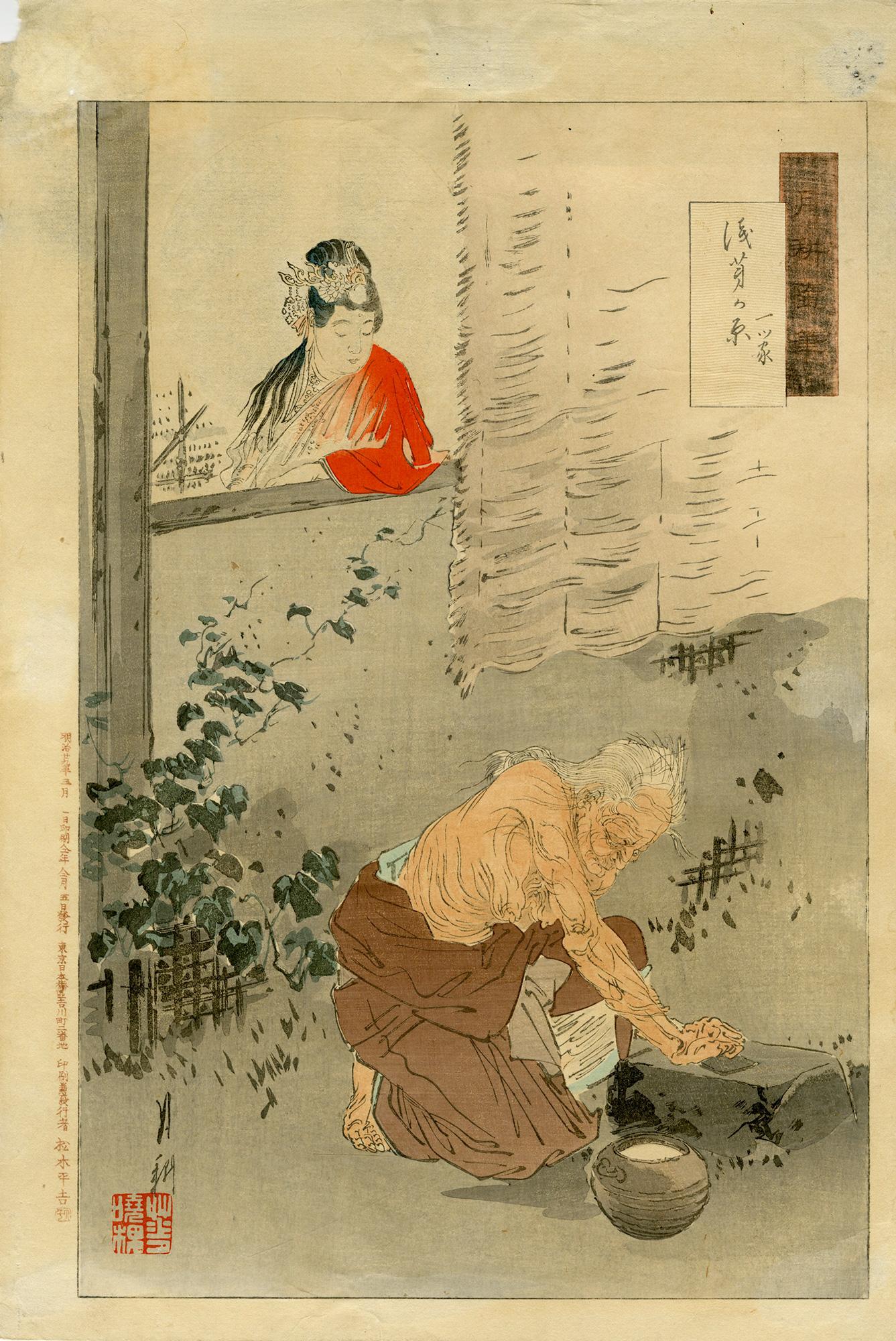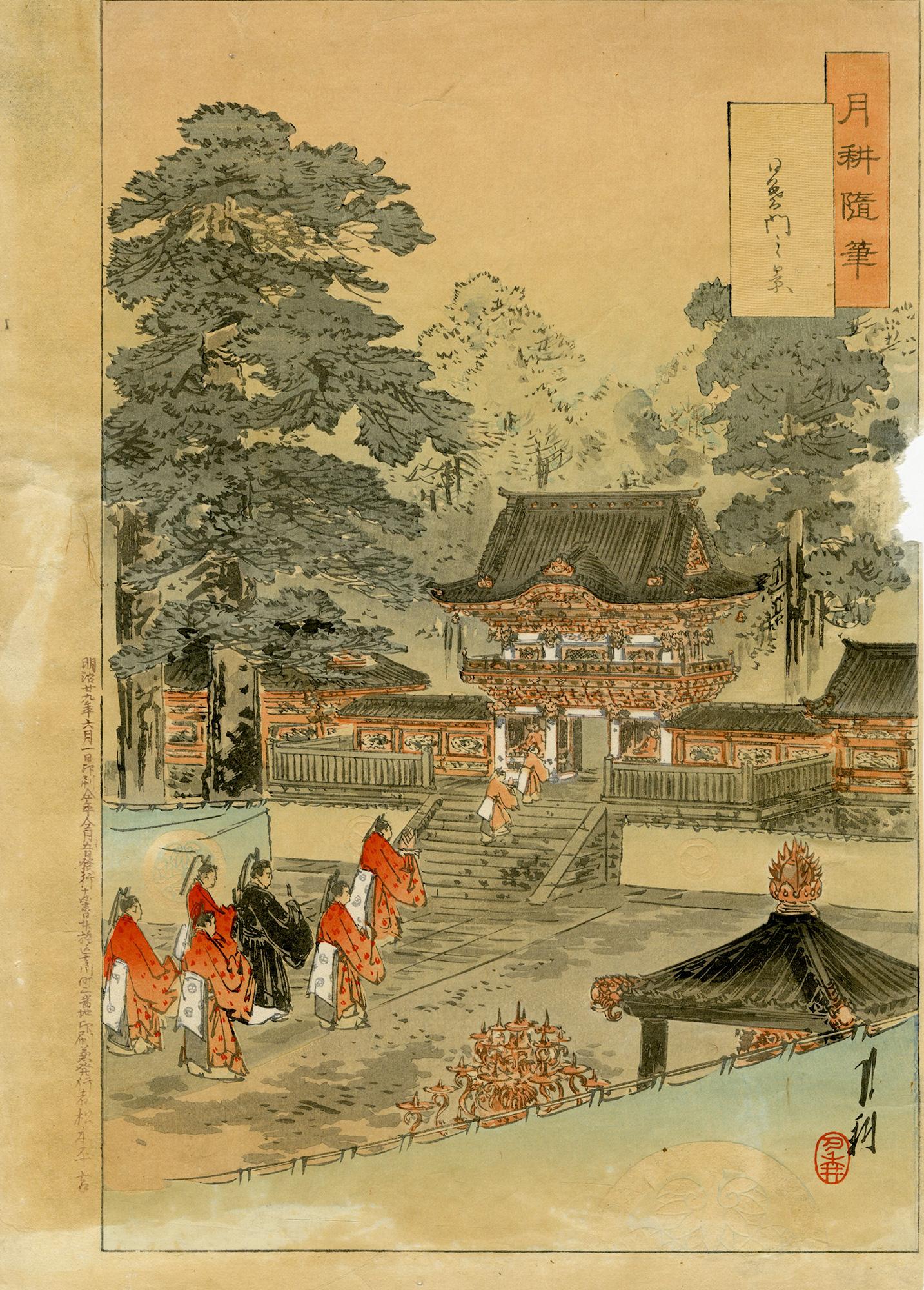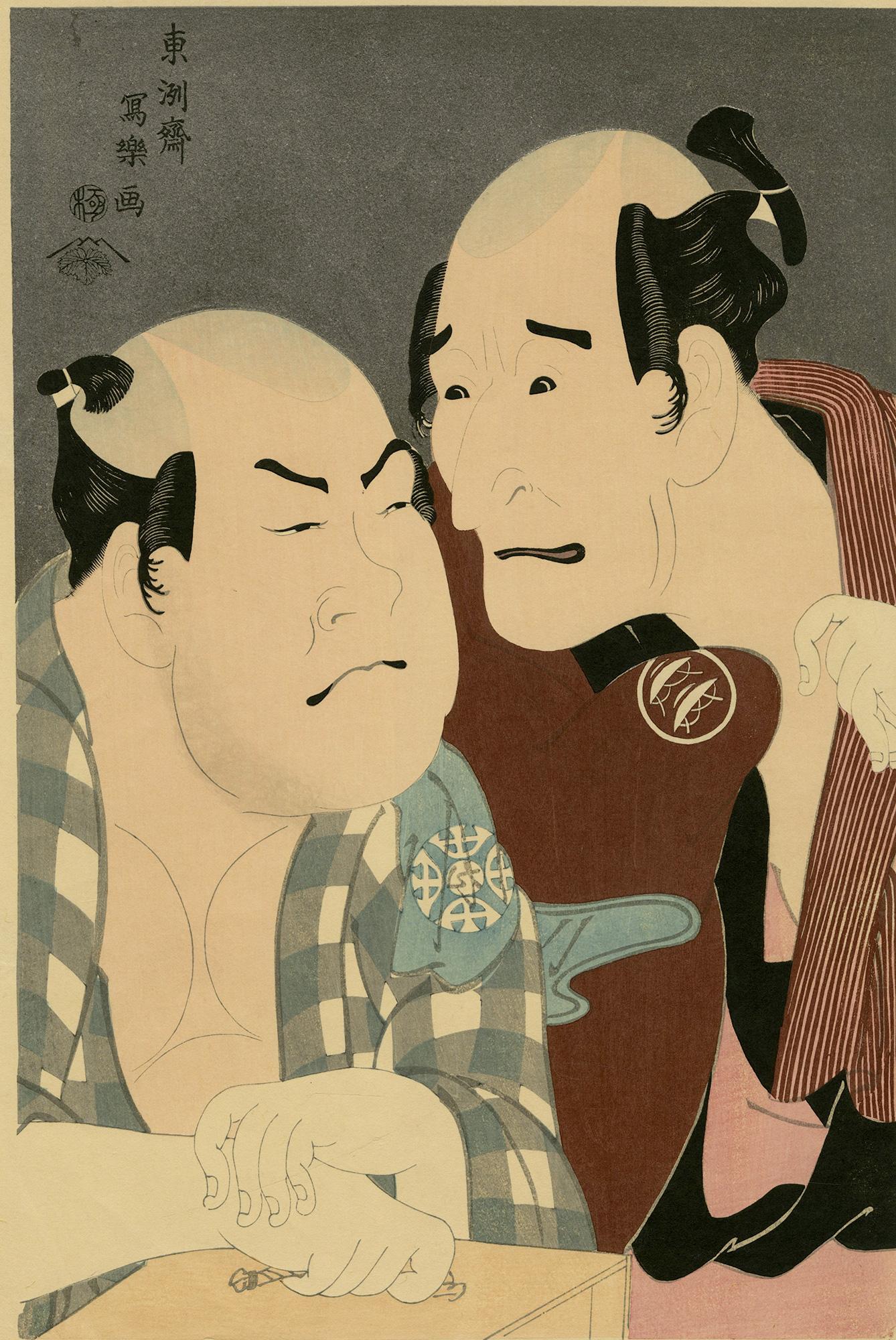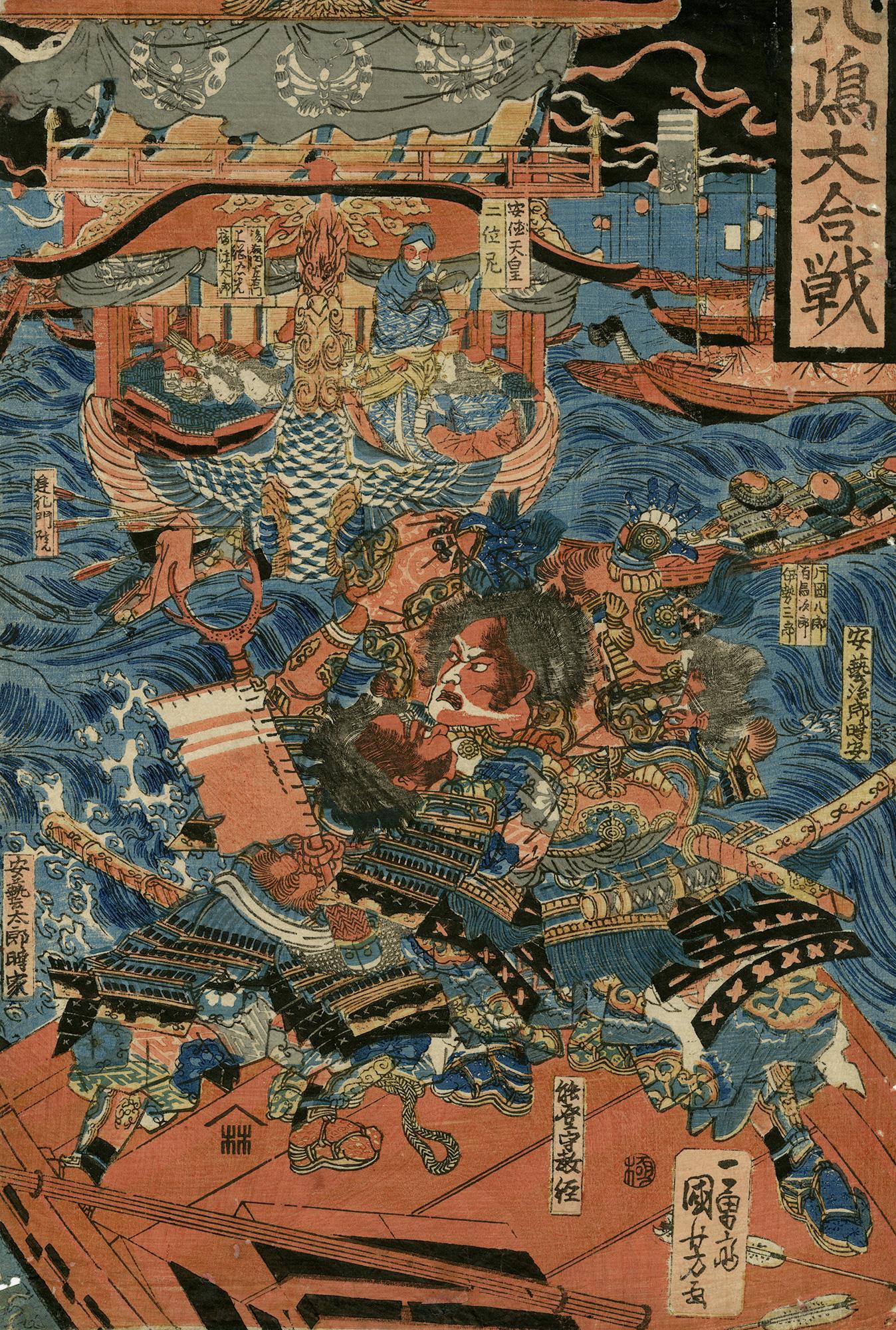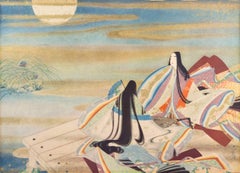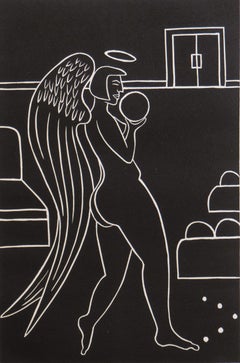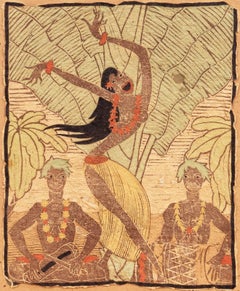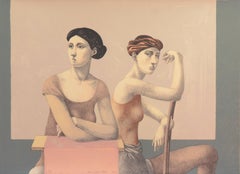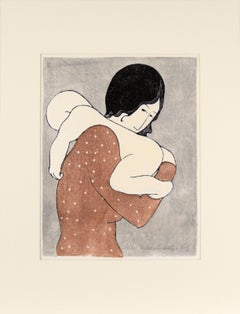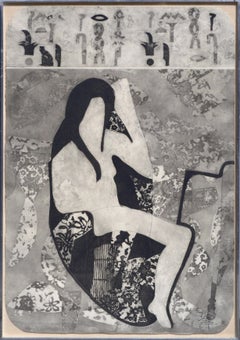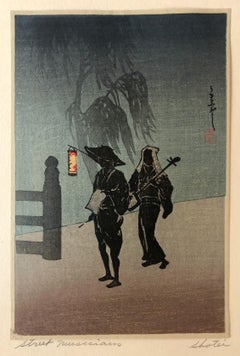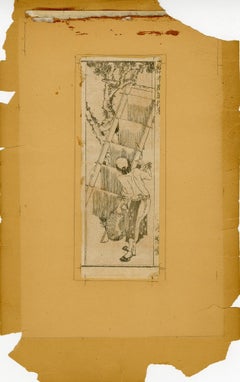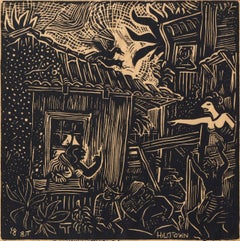
'Eeh! You Goosefukkamyahgoosenaroof!', Incident on Mamo Street, Hilo, Hawaii
View Similar Items
Want more images or videos?
Request additional images or videos from the seller
1 of 13
Tomas Belsky'Eeh! You Goosefukkamyahgoosenaroof!', Incident on Mamo Street, Hilo, Hawaii1983
1983
About the Item
- Creator:Tomas Belsky (American)
- Creation Year:1983
- Dimensions:Height: 16 in (40.64 cm)Width: 15 in (38.1 cm)Depth: 0.01 in (0.26 mm)
- Medium:
- Movement & Style:
- Period:
- Condition:minor creasing, minor age-toning; unframed.
- Gallery Location:Santa Cruz, CA
- Reference Number:1stDibs: LU344457752
About the Seller
5.0
Platinum Seller
Premium sellers with a 4.7+ rating and 24-hour response times
Established in 1982
1stDibs seller since 2013
720 sales on 1stDibs
Authenticity Guarantee
In the unlikely event there’s an issue with an item’s authenticity, contact us within 1 year for a full refund. DetailsMoney-Back Guarantee
If your item is not as described, is damaged in transit, or does not arrive, contact us within 7 days for a full refund. Details24-Hour Cancellation
You have a 24-hour grace period in which to reconsider your purchase, with no questions asked.Vetted Professional Sellers
Our world-class sellers must adhere to strict standards for service and quality, maintaining the integrity of our listings.Price-Match Guarantee
If you find that a seller listed the same item for a lower price elsewhere, we’ll match it.Trusted Global Delivery
Our best-in-class carrier network provides specialized shipping options worldwide, including custom delivery.More From This Seller
View All'Musicians Viewing the Full Moon', Large Japanese Color Woodblock Print, Biwa
By Ogyu Tensen
Located in Santa Cruz, CA
Signed, lower right, with artist's chop mark in Hiragana, 'Tensen-e' 天泉絵, for Ogyū Tensen 荻生天泉 (Japanese, 1882-1947)
A large, early-20th-century, hand-colored Japanese woodblock showing elegantly-robed figures seated beside musical instruments in a panoramic landscape and viewing the full moon through golden clouds. An elegant example composed with clear artistic vision and printed with a consummate mastery of a challenging medium.
Nihonga style painter Ogyu Tensen was born in present-day Nihonmatsu City, Fukushima Prefecture. He studied at the Tokyo Fine Arts School, where he was taught by the well-known Kanō school painter Gahō Hashimoto (1835-1908), who was instrumental in the development of nihonga painting. Tensen was selected to participate in the first Bunten exhibition (Ministry of Education Fine Arts Exhibition) in 1907, in which he won an award. He went on to win many other awards at the Bunten exhibitions and the exhibitions of its successor organizations, the Teiten (Imperial Academy of Fine Arts) and Shin Bunten along with exhibitions of the Japan Arts Institute (Nihon Bijutsuin) and the post-war 1946 Nitten (Japan Fine Arts Exhibition). Along with his work in printmaking, the Imperial Court commissioned paintings by him.
Tensen was a member of the Futaba kai artist...
Category
1920s Figurative Prints
Materials
Woodcut, Paper, Fiberboard
'Bowling Angel', Post Impressionist, Portland Museum, Albright-Knox Gallery
By Dan May
Located in Santa Cruz, CA
Signed lower left, 'May' for Dan May (American, 1952-2019) with number and limitation, '1/50'. Titled, lower center, 'Bowling Angel' and dated, lower right, '2003'.
Sheet dimensions:...
Category
Early 2000s Contemporary Figurative Prints
Materials
Paper, Woodcut
'Tahitian Dancer with Drummers', California Artist, Honolulu, Mexico, San Diego
By Hal Steward Wilcox
Located in Santa Cruz, CA
Signed lower right, "Hal Stuart" (American, 1892-1982) and inscribed "Tahiti".
Color woodblock print showing a Tahitian dancer in traditional dress accompanied by two musicians playing a to'ere and a drum, with lush banana leaves in the background.
Hal Steward (Stuart) Wilcox was born in California on March 14, 1892. Wilcox used several aliases for his art works: Piko Siska, Hal Stuart, Michelle Stuart, and Harold Stuart Wilcox. He lived in Laurel Canyon (Los Angeles) in 1931-32 and then made a trip to Tahiti and the Cook Islands. Later in his life he owned a fabric company in Honolulu where he designed native patterned fabric, and was enlisted in the WWI army working on camouflage alongside the "Camofleurs". He went on to do paintings of Mexico...
Category
1940s Figurative Prints
Materials
Paper, Woodcut
'Two Dancers', Yale, Cooper Union, Prix de Rome, Tyler School of Art, Assisi
By Alan Feltus
Located in Santa Cruz, CA
Signed lower center, 'Alan Evan Feltus' (American-Italian, born 1943), dated 1980 and with number and limitation, '44/60'. Blind stamped, lower right, 'E.P.' for Editions Press and embossed, lower left, 'Arches' for Arches artist laid paper.
This contemporary classical painter of the human figure first studied at the Tyler School of Art at Temple University in Philadelphia and, subsequently, at Cooper Union in New York City, where he received his BFA in 1966. In 1968, he earned his MFA from Yale University. Over the course of a distinguished career, Alan Feltus has been the recipient of numerous prizes, medals and juried awards including the Prix de Rome...
Category
1980s Modern Figurative Prints
Materials
Laid Paper, Ink, Lithograph
'The Female Gaze', NYMoMA, California College of Arts and Crafts, SFAI, CPLH
By Gerald Gooch
Located in Santa Cruz, CA
Signed lower center, 'Gooch', for Gerald Gooch (American, born 1933) with number and limitation, '5/16' and dated 1965.
Born in Mainington, West Virginia, Gerald Gooch first studied...
Category
1960s Modern Figurative Prints
Materials
Paper, Etching, Aquatint
'Lida & the Swan', New York Armory Show, Ashcan School, ASL, NYMOMA, AIC, LACMA
By Arthur B. Davies
Located in Santa Cruz, CA
Signed lower right, 'Arthur B. Davies' for Arthur Bowen Davies (American, 1862-1928) and created circa 1915.
An early twentieth-century sugar-lift aquatint showing Zeus in the guise of a swan, reclining and cradling Lida in his wings while King Tyndareus ponders the mutability of human circumstance.
Born in Utica, New York, Arthur Davies attended the Chicago Academy of Design from 1879 to 1882. He furthered his studies at the Chicago Art Institute, before moving to New York City in 1885 where he studied at the Art Students League and Gotham Art Students League. In 1893, he made the first of many trips to Europe, visiting Holland, Paris, and London. He became an arch-exponent of Modernism and the central organizing figure of 1913's watershed Armory Show. Davies developed a style that combined visionary Symbolism with elements of Tonalism and Cubism.
Who Was Who in American Art describes him as an “…important but enigmatic Modernist whose work was poetic, mysterious, and visionary”. Davies was the recipient of many gold medals and prizes and juried awards and his work is held in the permanent collections of museums nationwide, including New York’s Museum of Modern Art, the Art Institute of Chicago, the Baltimore Museum of Art and the Los Angeles County Museum of Art, among others.
Photo of Arthur B Davies circa 1907 in New York City by Gertrude Käsebier courtesy of Library of Congress Prints and Photographs Division Washington, D.C.
Reference:
Who Was Who in American Art 1564-1975: 400 Years of Artists in America, Peter Hastings Falk, Sound View Press 1999, Vol. 1, p. 835; Artists in California 1786-1940, Third Edition, Edan Milton Hughes: Crocker Art Museum, Sheridan Books 2002, Vol. 1, p. 280; Thieme-Becker Allgemeines Lexikon der Bildenden Künstler von der Antike bis zu Gengenwart, Ulrich Thieme and Felix Becker, Deutscher Taschenbuch Verlag 1992, Vol. 7/8, p. 470; E. Benezit, Dictionnaire des Peintres, Sculpteurs, Dessinateurs, et Graveurs, Jacques Busse, 1999 Nouvelle Édition, Gründ 1911, Vol. 4, p. 293; Davenport’s Art Reference and Price Guide 2009/10 Edition, LTB Gordonsart, Inc. 2008, p. 672; et al.
Additional biographical information follows, written by Catherine Southwick and Robert Torchia from the National Gallery of Art Online Editions:
Arthur B. Davies’s mystical, mysterious paintings hearken back to 19th-century romanticism, even while Davies aligned himself with American artists advancing the most radical ideals of their day. Davies was born on September 26, 1862, in Utica, New York, the son of English and Welsh parents who had immigrated to the United States in 1856. He first took art lessons as a teenager from a local landscape painter, Dwight Williams...
Category
Early 1900s Modern Figurative Prints
Materials
Paper, Aquatint
You May Also Like
"Lady Holding a Baby" - Woodblock Print on Laid Rice Paper
Located in Soquel, CA
"Lady Holding a Baby" - Woodblock Print on Laid Rice Paper
Elegant woodcut print by Stephen White (American, b. 1939). In an early example of White's signature style, a stylized, mi...
Category
1970s Modern Figurative Prints
Materials
Rice Paper, Woodcut
"Potiphar's Wife", Stylized Figurative Abstract Woodcut on Handmade Paper
By Paula Walzer
Located in Soquel, CA
Delicate woodcut print on handmade paper of a stylized figure and hieroglyphic-like symbols by Monterey Bay artist Paula Walzer (British,/American 1926-20...
Category
Late 20th Century Modern Figurative Prints
Materials
Paper, Handmade Paper, Woodcut, Raw Linen
Street Singers (Ukiyobushi), Shamisen Player and Singer
By Takahashi Hiroaki (Shotei)
Located in Middletown, NY
Watanabe Shozaburo, 1936. Woodblock in colors on handmade mulberry paper, Koban 182 x 120 mm, full margins. With the Shôtei artist seal in red ink, upper right. Signed "Shotei" and titled in English on the matrix in graphite. With the "Made in Japan" export stamp and the Watanabe catalog number stamp 179, both in blue ink, on the bottom sheet edge, verso, as issued. Adhered to a card stock matrix with deckle edges, as issued. A beautiful pre-war impression of this serene and peaceful scene, good gradient inking and luminosity in the lantern. Printed by hand with cherrywood blocks.
*Marc Kahn, Shotei catalog S10; Watanabe 179
Born in Tokyo in 1871, Hiroaki Takahashi...
Category
Early 20th Century Figurative Prints
Materials
Watercolor, Handmade Paper, Woodcut
Drying Paper
Located in Middletown, NY
Woodcut on cream laid paper, 7 1/4 x 2 1/2 inches (182 x 63 mm), narrow margins. Laid down to non-archival board with scattered soiling and some adhesive staining.
Okumura Masanobu (Japanese 1686 – 13 March 1764) was a Japanese print designer, book publisher, and painter. He also illustrated novelettes and in his early years wrote some fiction. At first his work adhered to the Torii school, but later drifted beyond that. He is a figure in the formative era of ukiyo-e doing early works on actors and bijin-ga ("pictures of beautiful women").
While Masanobu's early life is largely undocumented, he is believed to have been born about 1686, possibly in Edo (modern Tokyo). Edo was a small fishing village when Tokugawa Ieyasu chose it as his administrative capital of the Tokugawa shogunate, and by the early 17th century the city had prospered and its population had grown to half a million. Masanobu appears to have been self-taught painter (though he did study poetry under Tachiba Fukaku); he is not known to have belonged to any artistic school. His early work shows the influence of the Torii school of ukiyo-e painting...
Category
Early 18th Century Edo Figurative Prints
Materials
Handmade Paper, Woodcut
Two Women Playing Sugoroku from "Comparison of the Customs of Beauties."
Located in Middletown, NY
A scene from a vanishing Japan.
Two Women Playing Sugoroku from "Comparison of the Customs of Beauties."; The Customs and Manners of Women
Japan: Matsuki Heikichi, 1891.
Woodblock ...
Category
Late 19th Century Edo Figurative Prints
Materials
Watercolor, Handmade Paper, Woodcut
Dyeing Paper
Located in Middletown, NY
Japan: circa 1770.
Woodcut on cream laid paper, 7 1/4 x 2 1/2 inches (182 x 63 mm), narrow margins. Laid down to non-archival board with scattered soiling and some adhesive staining...
Category
Late 18th Century Edo Figurative Prints
Materials
Handmade Paper, Laid Paper, Woodcut
